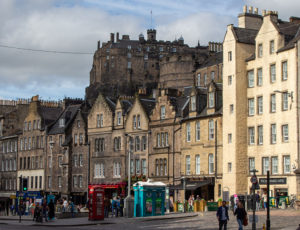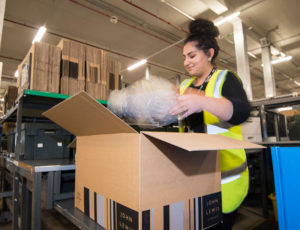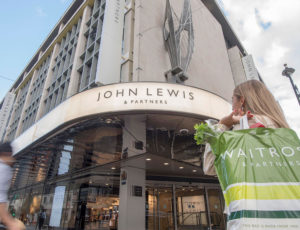John Lewis Partnership becomes first UK retailer to set net-zero science-based targets

The John Lewis Partnership has become the first retailer in the UK to have its net-zero science-based targets validated by the official body that validates climate targets. The Science Based Targets initiative (SBTi) – the gold standard for setting and monitoring corporate climate targets – has validated the Partnership’s target to become net-zero across its operations by 2035 and wider supply chain by 2050.
The Partnership, which owns John Lewis and Waitrose, is also the first retailer in the world to have validated SBTi science-based targets focused on greenhouse gas emissions originating from ‘forests, land and agriculture,’ which make up part of its total emissions footprint alongside the energy used to run its stores and make its products.
The Partnership’s forests, land and agriculture target underpins its Plan for Nature published last autumn, which commits to a range of initiatives to significantly reduce the impact of the two businesses’ commercial activity on the natural world.
Commenting is Marija Rompani, Director of Sustainability at the John Lewis Partnership. “Reaching net-zero by 2050 means transforming our business in every way, from how we design our goods to last, how we and our suppliers power our farms, factories and stores, and how we make it easier for our customers to make more sustainable choices. To be the first retailer globally to set forest, land and agriculture science-based targets gives us great pride. It will be the bedrock of our plans to protect and restore nature and tackle the climate crisis over the years to come.”
Another element to reducing the Partnership’s emissions footprint is prioritising circularity in how it designs products and services, such as offering fashion rental for childrenswear.
Simon Winch, Environment Lead at the John Lewis Partnership, says; “Coming up with a set of credible targets for our road to net-zero is the culmination of many months of focused work and determined preparation. Validation by SBTi gives us great confidence in the targets and our plans. But we know this is only the start. The validation of our science-based targets will turbocharge the change needed in our business to transform how we operate and help ensure that the world remains in sight of limiting global warming to no more than 1.5°C.”
Luiz Amaral, CEO of the Science Based Targets initiative, adds; “Climate science tells us that we need rapid and deep emissions cuts if we are to achieve global net-zero and prevent the most damaging effects of climate change. The John Lewis Partnership’s net-zero targets match the urgency of the climate crisis and set a clear example that their peers must follow.”













